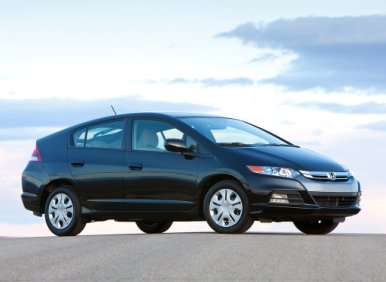Recent Articles
Popular Makes
Body Types
Hybrid Cars Pros And Cons
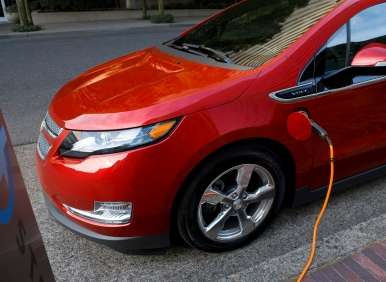
With nearly car every manufacturer jumping on the hybrid bandwagon, it’s easy to assume the best solution for achieving exceptional gas mileage must be a hybrid—right?
Well, yes and no.
Like so many things in life it depends upon your particular situation.
How many miles do you drive annually? Is most of your driving on the freeway, or around town? How readily can you access alternative fuels like compressed natural gas or diesel? How old is your current car? Are you considering trading it in on a hybrid to save money on fuel?
These are the primary questions one needs to ask before considering the purchase of a hybrid automobile. While they definitely look like the magic bullet when it comes to killing high gas bills, there could well be some hidden costs that will negate those savings.
That said, let’s start with the obvious question:
Just what exactly is a hybrid car anyway?
Hybrid Cars Pros And Cons: What Is A Hybrid?
In a nutshell, a hybrid car is one that combines a traditional fossil-fueled internal combustion engine with one or more electric motors/generators to provide power to the drive wheels. The electric motors are typically powered by an onboard battery pack, which is recharged by the internal combustion engine in one way or another. Recharging of the battery pack also occurs whenever the vehicle coasts or brakes. Remarkably, while most people think of cars when they consider hybrid propulsion, locomotives and submarines are also powered by hybrid systems.
Braking a hybrid car captures the energy typically dissipated as heat, converts it into electricity, and uses it to recharge the battery pack. When the vehicle coasts, or “freewheels” (say, for example, when you’re traveling downhill with your foot off the throttle) the electric motors serve as generators to supply electricity to recharge the battery pack. When neither of those occurs and the onboard computer determines the battery packs needs a charge, a portion of the energy generated by the internal combustion engine will be used to recharge the battery pack.
When it comes to cars, there are basically two types of hybrids; “full” hybrids, and “mild” hybrids. A full hybrid is capable of being propelled by the internal combustion engine or its electric motors independently of one another or simultaneously. Typically, the electric motors will propel the vehicle for a relatively short distance at relatively low speeds before the internal combustion engine must be employed.
A mild hybrid uses the electric motor in combination with the internal combustion engine to provide propulsion. In this configuration the electric motor is incapable of propelling the vehicle on its own. As you might imagine, all other things being equal, full hybrids have a tendency to be more expensive than mild hybrids. An example of a full hybrid automobile is the Toyota Prius, while an example of a mild hybrid is the Mercedes-Benz S400 Hybrid.
By the way, hybrid power trains can also be used to improve the performance of an automobile. Manufacturers like BMW and Mercedes-Benz will mate an electric motor with a smaller internal combustion engine to develop the power and torque of a larger internal combustion engine in order to achieve fuel economy of a smaller engine.
Now, let’s consider the pros and cons of hybrid cars
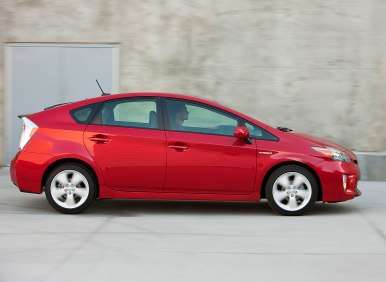
Hybrid Cars Pros And Cons: Benefits
Without question, one of the most significant pros of hybrid cars is gas mileage. Without exception, hybrid cars deliver better overall fuel economy than their traditionally powered counterparts. In some cases this can be as much as 40 to 50 miles per gallon. Another plus is the hybrid’s potential eligibility for federal and state tax credits, which can have the effect of lowering the purchase price. Then, of course there is the cleaner conscience you get from driving a vehicle with lower emissions. Because hybrid cars use less fuel, they also emit fewer pollutants into the atmosphere.
When it is time to sell your hybrid and buy a new car, you'll be pleased to find hybrids have a tendency to hold their value really well too. Now that people have gotten used to the idea of hybrid cars, and their anxiety about the longevity of battery packs is pretty well dissipated, hybrids are finding a ready audience in the used car market place.
Hybrids have also proven themselves to be quite reliable. When Honda and Toyota introduced hybrids back in the latter years of the 20th century there were many concerns about the longevity of their battery packs, the potential for chemical spills and accidents, and just the general robustness of the hybrid powertrain. All of those concerns have been proven unfounded. Hybrids have been on the road for well over 12 years now in the United States and none of those problems have manifested themselves.
If you do a lot of city driving, you will derive the greatest benefit from driving a hybrid vehicle. Because of the way they work—using electric motors at low speed and shutting the internal combustion engine off completely at traffic signals and stop signs—the hybrid is at its most significant advantage in urban driving. This is why whenever you see EPA mileage estimates for hybrid automobiles the city figure is typically larger than the highway figure. While there are some performance benefits to electric propulsion on the highway, in most cases it is quite negligible.
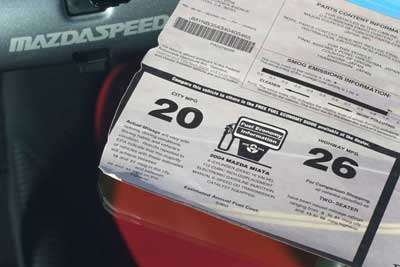
Hybrid Cars Pros And Cons: Costs
Cost leads the list of hybrid car cons.
You will pay up to twenty percent extra or more to buy a hybrid car than a comparable conventionally powered automobile. One of the most significant hybrid car cons is money. For example, pricing for the hybrid Toyota Camry starts at $25,900. Meanwhile, pricing for the conventional Toyota Camry starts at $22,055. It should be noted however, depending upon how much you drive and the cost of fuel the difference between the prices could be made up over time in reduced fuel expenditures.
For example, let’s say your current car averages 20 miles per gallon, you drive 10,000 miles a year, and your gas costs $5 a gallon.
Dividing your annual mileage (MPY) by your MPG {10,000MPY divided by 20MPG equals 500 gallons consumed (GC)} you learn you use 500 gallons of gas a year. Multiplying those 500 gallons consumed by the $5 each gallon costs, means you’re paying $2,500 a year for gas. If you buy a hybrid that gets 40MPG, you’ll double your gas mileage, which will cut your gas bill in half. Which means you’re saving $1,250 a year.
Now, to keep the math relatively simple, let’s say the regular Camry averages 20 miles per gallon and the hybrid Camry averages 40 miles per gallon. If you bought a hybrid Camry at the base price of $25,900, instead of the standard Camry at $22,055, you’ll pay $3,845 more to buy the hybrid. Since you’ll be saving $1,250 a year driving the hybrid, if you divide your $1,250 savings into the $3,845 price difference between the price of the two cars you’ll learn it will take just over three years of fuel savings to break even on the price of the two cars. However, after the third year, you’ll start saving money driving the hybrid.
In other words, if you keep the hybrid more than three years you’ll profit. Otherwise, it’s actually more expensive to drive the hybrid. Similarly, if you just bought a car recently and it isn't paid off; to get rid of it and get a hybrid will be even more expensive. Therefore it will take much longer to derive a monetary benefit from the potential fuel savings.
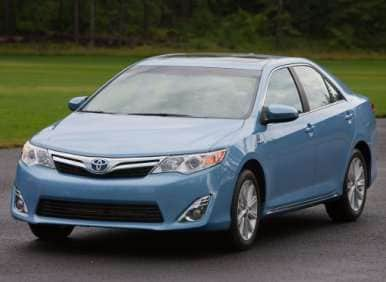
Hybrid Cars Pros And Cons: Alternatives
On the other hand, a number of conventionally powered cars today can exceed 40 miles per gallon without the added expense of the hybrid powertrain. When weighing the pros and cons of hybrid cars, before you make the decision to go hybrid, investigating all of the alternatives may save you some money both when purchasing your vehicle and fueling it.
Honda offers a version of its Civic that runs on natural gas. And while its fuel economy is lower than the hybrid’s and its price is higher, it also runs cleaner and uses no gasoline at all. If you have ready access to a steady supply of compressed natural gas, the conscience savings that come along with Civic Natural Gas might be worth it to you.
Similarly, Audi, BMW, Mercedes-Benz, and Volkswagen all offer clean diesel versions of some of their most popular models. In many cases, the fuel economy achieved by the diesel engines is quite comparable to that of a hybrid powertrain. Plus, you typically get better performance from the diesel engine than you do from the hybrid powertrain. If these issues are significant for you and you spent a lot of time driving on the highway diesel might be a better alternative. Remember, hybrids are at their best in city driving. Conversely, diesel engines perform better on the highway in terms of fuel economy.
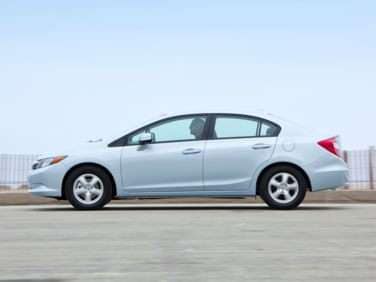
Hybrid Cars Pros And Cons: Conclusions
To reiterate, the pros and cons of hybrid cars really vary depending upon your specific situation.
If your commute includes a lot of stop and go city driving, the hybrid car will definitely benefit you, assuming the other cost factors line up. If your commute involves miles and miles of high-speed driving on interstates, highways, and or freeways you might be better off going with a conventional internal combustion engine. However, you might find and alternatively fueled version of internal combustion engine will produce significant savings in terms of fuel economy.
These days, there are a broad variety of hybrid cars available. Times have changed significantly since the days when your only two choices were the Toyota Prius and the Honda Insight. Today's marketplace includes full-size luxury hybrids, midsize mainstream hybrids, compact hybrids, and even plug-in hybrids. There are also a number of full electric models either currently on sale or coming to market very soon. Manufacturers such as BMW, Mercedes-Benz and Porsche are even incorporating high-performance into their hybrid solutions.
Ultimately, what it boils down to is the best choice is what works best for you and your particular situation.
